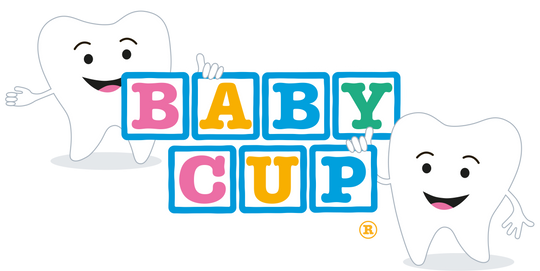Baby Tooth Care Tips: Healthy First Teeth in 3 Simple Steps
Baby Tooth Care Tips: Healthy First Teeth in 3 Simple Steps
By the age of 5 years old, 1 in every 5 children in the UK has rotten teeth. Some bad enough they need to be filled or even taken out completely. Although it may seem daunting when faced with a wriggly baby or the clenched jaws of a toddler, an effective oral health routine is vital when setting your child up on the road to life-long healthy teeth.
Children in the UK are fortunate as they receive free dental appointments and treatments on the NHS. Keeping a professional eye on the development of your child’s teeth as soon as they start to peek through the gums, from their gappy wobbly grins right up to their full set of ‘big’ teeth. It is a good idea to start taking young children to the dentist when you have an appointment, so they become used to the surroundings and know it is something they never need to feel worried about.
Although having a dentist see your child’s teeth will check they are staying healthy, it is everyday actions that are the foundations of a solid set of teeth.

Toothbrushing Tips
Parents should start to brush their children’s teeth as soon as they appear through the gums using a baby toothbrush and a tiny smear of fluoride toothpaste. Don’t panic if you feel like you’re not getting very far, teething is a major discomfort for some children so being very gentle and just introducing teeth as part of their daily routine is all that is needed at first.
Some children will dislike having their teeth brushed and make sure you know it! Being persistent but gentle will eventually persuade them it’s nothing to worry about. Perhaps building a game around the routine, or for older children, using apps and Youtube videos specifically made to aid teeth brushing could help. Letting them see you brush your own teeth sets a great example. The NHS suggests to ‘brush the teeth in small circles, covering all the surfaces, and encourage your child to spit the toothpaste out afterwards.’
Steer Clear of Sugar
Sugar is a major reason children’s teeth take a turn for the worse. When planning meals make sure to consider the amount of sugar in your child’s diet as a whole, including snacks and drinks. Sucrose, glucose, dextrose, maltose, fructose and hydrolysed starch are all sugars. Look out for sugar free options and limit their intake of sweets and biscuits. Although fruit is a healthier sweet treat and a better option than a pile of custard creams, it does contain a lot of natural sugar. Fruit juices should also be limited and never drunk from a bottle or sippy cup – always open top, like the Babycup First Cup.

Good Drinking Habits
We all know that drinking sugary drinks can be bad for teeth but the way children consume drinks also plays a part in their oral development. Bottles are perfect for young babies drinking expressed breast milk, formula milk or cooled boiled water, but consistent drinking of sweetened drinks from a bottle can lead to tooth decay. The British Dental Health Foundation advises that drinks should be offered six to eight times a day, and from as early an age as possible, should be sipped from a cup or glass, not sucked from a bottle.
Dr Grant McAree of The Whyte House Dental Group also recommends using an open cup like Babycup for baby’s first drinks as it encourages healthy tooth development. He says
‘As Babycup is an open cup it reduces the chances of acid erosion to teeth. It’s also small so babies and young children can easily learn to sip from it.’
Independent Health Visitor, Penny Lazell, also favours open cups.
‘A simple baby size cup, that allows sipping at mealtimes rather than on the go. A cup that allows independence and promotes healthy oral development as well as enhancing hand eye co-ordination. The only cup your baby will need.’
Keeping an eye on sugar intake, a thorough cleaning routine, regular visits to the dentist and choosing suitable cups for your baby to drink from will all come together to help make sure your little ones will have healthy teeth for years to come.
